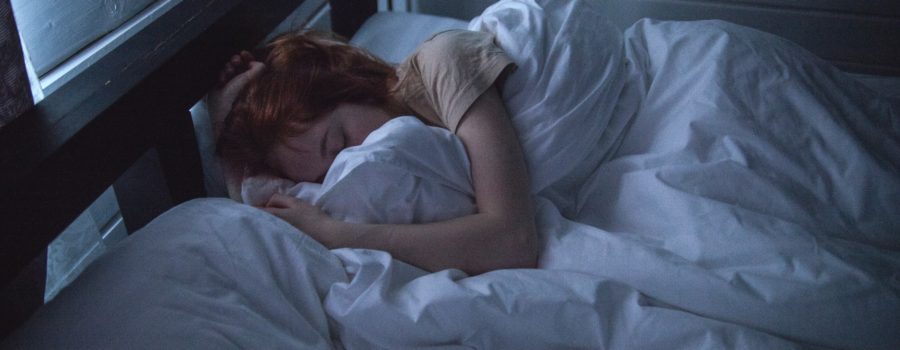Simple Lifestyle Changes You Can Make To Help Overcome Perimenopause Insomnia

Are you looking for natural perimenopause insomnia remedies to help you sleep?
When I think back, perimenopause insomnia was one of the earliest signs that I had entered menopause transition. It got to a point that at most, I would only get 5 full night’s sleep per month.
The responsibility of being a Midwife meant that I could not afford to let my brain fog get worse. So I did some research to find out how to get back to sleeping through the night.
Here are the natural perimenopause insomnia remedies that I developed to help me get at least 7 hours of sleep at night and wake up refreshed.
Insomnia, Brain Fog And Fears Around My Job
At my worst times, I would only get 3 to 4 full nights of sleep per month. Lack of sleep kept me in perpetual brain fog.
So as a Midwife with lots of responsibility, this is a worrying state to be in. Having to be always forward thinking and care planning, making mistakes can have drastic consequences.
I had to find a solution to overcome my perimenopause insomnia.
The Advice I Received From My Doctor
It was only after my GP told me I’m in menopause transition and doing my own research, that I found out insomnia is a sign of perimenopause.
His only advice was for me to go on HRT!
I am not one for using medications and I avoided the pill as much as I could in my younger years. I know that the pill and other medications affect your body’s natural rhythms and metabolism.
So I am reluctant to go the ‘medical route’ for my poor sleeping patterns.
That’s not to say I am against others using HRT. We all have to do what’s best for us.
From my viewpoint, I would have to be desperate to go on HRT. At that point and to this day, I have not felt desperate enough to resort to HRT.
Luckily I have found the solutions that allow me to get a full night’s sleep.
The First Signs Of Perimenopause Insomnia
Before perimenopause, I could fall asleep at the drop of a hat. Being always busy at work means sleep was never a problem for me.
It’s a long standing joke that, put a film on tv and more often than not, I would be asleep within half an hour. Cinema trips when my daughter was younger, would result in my falling asleep next to her!
I was around 45 years of age when my perimenopause sleep problems began. I would have the odd night where I wake up in the middle of the night.
Eventually, even after a stressful day at work, I would wake in the middle of the night and find it hard to get back to sleep again. Over time, my insomnia got steadily worse to a point that, I would only get five days per month of a full night’s sleep.
However, waking up groggy, daily brain fog, decreased concentration and poor memory, began to take its toll.
So I decided to use my knowledge of nutrition and lifestyle medicine, to uncover natural remedies to manage my perimenopause insomnia and other symptoms that I experience.
These natural perimenopause insomnia remedies work for me. If you want to avoid HRT or just want to try natural remedies first, these tips may be worth trying to see if they work for you too.
Simple Nutrition And Lifestyle Perimenopause Insomnia Remedies

One of the best natural perimenopause insomnia remedies, is to include at a lot of cruciferous vegetables in your diet
For lunch and dinners include at least a quarter, of the plate of cruciferous vegetables.
Green and yellow vegetables such as cauliflower, cabbage, broccoli and brussels sprouts are known to…
- Provide antioxidant protective properties
- Induce xenobiotic metabolism. This means that these vegetables support the metabolism of oestrogen, minimising the effects of oestrogen dominance and hormone imbalance.
If oestrogen is not eliminated from the body effectively, the hormone gets recirculated and becomes even more toxic. This may be one reason women have increased risk for cancers due to menopause.
Cruciferous vegetables contain sulforaphane (SFN) compounds or enzymes that induce Phase II detoxification. This supports the detoxification of oestrogen from the body.
Have oily fish at least 3 times per week
Oily fish such as salmon, mackerel, anchovy, sardines and herring contain the essential fatty acids (EFAs) Omega 3 and Omega 6. These EFAs are fats that the body needs, but is not able to manufacture.
Therefore, it’s important that we eat food sources to provide our body with these essential fats.
EFAs provide protection that…
- Support the structure of cells, tissues and organs
- Regulate lipid metabolism
- Maintain a healthy nervous system
- Provides anti-inflammatory protection
- Support the cardiovascular system
- Associated with prevention of certain types of cancers
Plant sources of EFAs include…
- olive oil and olives
- avocado
- coconut oil
- nuts
- seeds
Most of my lunches and dinners include a lot of fish and cruciferous vegetables. I also cook with olive oil.
I snack on nuts to keep my energy levels in balance, instead of reaching for something sweet that results in energy crashes.
Keep Your Blood Sugar Balance In Check
For me, keeping a steady energy balance is important.
Before learning about the cause of perimenopause insomnia, I would wake up in the middle of the night to hear my heart pumping quickly and I would feel hungry.
As a nutritionist and medical professional, I know this is a classic sign of hypoglycaemia or low blood sugar levels. This happens if I have been too busy in the day to eat lunch or if I eat simple carbohydrates.
Simple carbohydrates are foods such as white bread, pasta or rice, that provide instant energy, but also increase insulin release.
Not only does insulin bring your energy levels down, it is also a fat storing hormone. That’s why you may notice the more of these foods you have, the wider your waistline gets.
Including a lot of cruciferous vegetables, nuts and seeds in you diet gives you better control over your blood sugar levels. As a result, you sleep better as your blood sugar levels remain balanced.
Increase Fibre Intake
Oestrogen and progesterone play a role in digestive health. Lower levels of these hormones may result in digestive problems for some women.
My main reason for including fibre in my diet is for elimination of excess oestrogen and to encourage healthy bowel movements.
However, fibre also plays an important role in promoting growth of beneficial gut bacteria.
As serotonin is made mostly in the gut, healthy levels of beneficial bacteria also promotes improved mood balance.
Have A Variety Of Multi-Coloured Vegetables
The more variety of vegetables you include in your diet, the more variety of vitamins and minerals you provide your body with.
Nutritional requirements and metabolism during menopause transition is important, due to the lower anti-inflammatory effects of decreased oestrogen.
For this reason, your diet needs to provide the nutrients your body needs to compensate for the decreased anti inflammatory effects of estrogen.
However, there may be times when your diet is not as healthy as you would like. It may also be difficult to eat as healthy as you would normally do.
Much as it is important to get your nutrients from whole-food sources, there may be times when you need to supplement with quality vitamins.
This ensures that you still provide the nutrients your body needs, until you can resume your healthy eating habits.
Support Your Digestion
This is another big factor for me.
One of the most shocking learning for me as a student nutritional therapist was this statement from one of the tutors.
You are what you digest and absorb.
ION Tutor
What shocks me about this is that, you can have the healthiest diet. But if your body is not able to digest your food, you will not be able to absorb and as a result, benefit from the nutrients you consume.
If you are not able to digest your food, you are at risk for nutrient deficiencies. This may include poor digestion of fats and more importantly, fat soluble vitamins A, D, E and K.
Bitter foods such as cruciferous vegetables, bitter melon, rocket, watercress, coffee, green tea are great for supporting digestive enzyme production.
However, I know that I have problems digesting fats and protein heavy meals (think steak dinners). So I do resort to digestive enzymes when I feel discomfort after eating.
Have Your Vitamin D Levels Checked And Corrected If Needed
I think this is the one thing that really made a difference to my sleep issues.
I know that my vitamin D level was low, as it was tested at my GP surgery. However, it wasn’t until a holiday in a sunny country that made a difference to my sleep.
Like oestrogen receptors, Vitamin d receptors are present in a lot of organs. Topping up my vitamin d level really helped achieve good sleep!
Disclaimer: Please ensure you consult with a qualified nutritionist or nutritional therapist before using supplements, as you may have health issues that need to be addressed prior to using supplements.
Lifestyle Factors To Include As Part Of Your Perimenopause Insomnia Remedies
Appropriate Exercise
I say appropriate exercise, as excessive exercise can have the opposite effect of what we want to achieve.
I am not a personal trainer, however, I do know that exercise in menopause is different to our younger years.
As oestrogen decrease in perimenopause and menopause, the adrenal glands take over to produce oestrogen.
There is something called cortisol steal, in which stress ‘steals’ the basic building blocks of hormones. So instead of oestrogen being made, pregnenolone is diverted to make cortisol as a result of increased stress levels.
So in midlife, we have to be more selective with our exercise of choice. My choice is to life weights, because lifting weights serves several purposes…
- Helps with weight loss
- Increase muscle mass to minimise risk of sarcopenia
- Helps keeps your bones strong and minimise the risk of osteoporosis
- Reduce stress hormones and helps you to relax for restful sleep
- Building muscle also changes your body’s metabolic processes. The more muscle you have the more efficient your body is in burning fat and energy from food. This also reduces your risk of cardiovascular disease
- Ok, for vanity’s sake I like to see less folds and sagging under my clothes when I look in the mirror. Don’t you feel more confident when you look good in your clothes? ;0)
Mindfulness and Meditation
This may sound a bit woo woo, but it is another factor that is important. We are so busy with our lives, our worries, how perimenopause and menopause affects our…
- Health
- Relationships
- Jobs
That we forget to unplug for these stressors and our thoughts about them. Mediation really helps to calm my thoughts at night, so that I fall into restful sleep.
Meditation also helps to unravel feelings that bubbles to the surface, but we are so afraid of, that we stuff it back down to the deep, dark places inside us. Meditation also stops the constant chatter in your head, that creates negative feelings.
I know that you may be apprehensive about mediation, so you might be worth getting support from a meditation guide or take classes.
If you are not ready to take that leap, reading about meditation, the benefits and how you can start a mediation practice may be just what you need at this stage.
Menopause Sleep Aid
This might seem funny, but it has been instrumental for helping to sleep through the night!
Although we live in the countryside where you hear birds chirping nearby and animals mooing in distance. We also live nearby a train line.
Sounds of nature are great, but not at 3 to 4 am when you want to carry on sleeping till the alarm goes off.
I mentioned this problem to a midwife colleague of mine and she suggested getting ear plugs! I thought it might be a bit unsociable, but they have been a godsend.
Ear plugs blocks out most external noise (early bird songs, trains passing by, if you’re in the city – the noise of traffic and general noise).
However, you will need to turn your alarm clock/phone on louder as you may be in danger of not hearing it.
We have tried two kinds of ear plugs, multi-coloured and individually wrapped ones, as well as green ones that come in a tub.
What To Avoid
Natural perimenopause insomnia remedies are not just about what you do, there are things you also need to avoid doing too. Here are my tips on what to avoid.
Alcohol
I am not going to suggest stop drinking alcohol, as I still drink alcohol.
It would be great if you can stop, but I would suggest avoiding alcohol or at least reducing your intake. Alcohol is what is known as an anti nutrient and excessive intake will reduce the effect of other perimenopause insomnia remedies that you may be trying.
We now drink mostly at the weekends and nowhere near as much as we used to. I can feel the difference when I have had too much, as my…
- Energy levels see saw, as alcohol depletes b vitamins
- Poor sleeping patterns return due to poor blood sugar balance and hypoglycaemia waking me up
- Breasts becomes painful due to excess oestrogen
- Water retention is more evident as alcohol affects hormone balance related to water balance
Minimise Caffeine Intake
I have to admit, I love my coffee in the morning! During the week, I have one cup of coffee in the morning. At weekends I may have two cups with Mr G, but I make sure I drink them before 1 pm.
Before I knew much about nutrition, I used to have cola and even went through a phase where I drank energy drinks when it was the drink to have!
These drinks not only induce poor blood sugar balance, they are also full of caffeine. Fizzy drinks and caffeine can promote inflammatory reactions that may affect sleep.
I worry about people who claim that caffeine does not affect them. This only means that their body has become immune to caffeine. But the caffeine is still doing damage to their health. Just my thoughts.
Caffeine is a stimulant and if I have more than one coffee per day, especially if I drink a caffeinated drink after 1 pm, I can guarantee I will wake in the middle of the night.
Taking A Nap
There are days when I really need a nap. If I’m in a position to I will take a nap, if I am really desperate.
It is best to avoid naps as although you feel better, it also resets your body clock and may mean that you end up being awake at night.
Blue Light
Our eyes send light and dark messages to the hypothalamus. The hypothalamus then sends hormone messages to the pituitary gland to produce melatonin.
Too much blue light, especially just before you go to sleep disrupts the hypothalamus-pituitary messaging system and this may be why you stay awake at night.
If you wake up in the middle of the night, it may be better to read a book instead of looking at your phone or IPad.
Personalise Your Perimenopause Insomnia Remedies
These are tips that help me get a full night’s sleep.
There are night’s when I still wake up and not be able to get back to sleep again. But they are more a few occurrences, instead of the regular disturbed sleep I use to experience.
Hopefully they work for you too. However, we are all different and there may be other issues that need to be corrected, so you get back to sleeping regularly.
This is where Nutritional Therapy may help you uncover underlying issues for your perimenopause or menopause insomnia.
I offer personalised Menopause Nutrition support in my clinic in Winchester.
If you are unable to travel and would still like personalised support, I also offer a virtual clinic. You still have the same level of care, apart from consultations being help via Zoom.
If you are ready to uncover ways for you to get back to sleeping through the night again, get in contact and book your consultations today!
Do you experience perimenopause insomnia? How do you cope? Comment and share your experiences below!
DISCLOSURE: This article include affiliate links. This means that I get a small percentage of the cost, if you decide to buy the products suggested here. These are just suggestions and are not intended to replace advice from an appropriately qualified nutritionist or healthcare professional.






